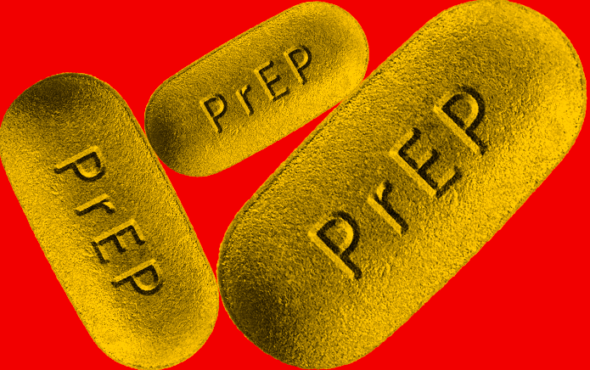
A severe shortage of HIV prevention drugs in Germany has sparked fears of a spike in infections over coming months, with doctors urging government to step in and keep tens of thousands safe.
Almost 90% of Germany’s doctor surgeries and pharmacies are affected by the shortages of PrEP pills, according to a survey by dagnä, an association of HIV specialists.
The shortfall could drag on until April, prompting experts to suggest alternate solutions – be it lower dosage or new drug supplies – to keep people safe.
Here’s what you need to know.
Why is there a shortage?
Pre-exposure Prophylaxis (PrEP) is an HIV prevention medicine highly protective against the virus and recommended for people at greater risk of infection, including men who have sex with men and people who have unprotected sex.
Although many factors are driving the shortage of the drug – which can also help HIV-positive patients – dagnä says the issue stems mostly from the way Germany buys its drugs.
Many manufacturers make PrEP, yet in Germany’s public-private healthcare system, only the company offering it at the cheapest price qualifies for the state contract that guarantees insurers will cover the patient’s costs.
All of which means three firms make up about 71% of the market and their rivals tend to cut output, expecting low sales.
“With such market concentration, small disruptions in the value chain can immediately cause bottlenecks,” Daniel Sander, spokesperson for dagnä, told Openly.
“If, for example, production by the main suppliers stalls or supply chains are interrupted, supply is quickly put at risk because the other manufacturers cannot meet the demand.”
Two of the three main PrEP manufacturers reported problems in late 2023, while the biggest provider said in December that it could not meet demand for the drug.
PrEP is an antiretroviral combination of emtricitabine and tenofovir that also goes under the brand name of Truvada.
Why are health experts worried?
Doctors and health groups worry that a lack of PrEP – be it lasting weeks or months, as feared – could boost HIV infections.
About 32,000 people take PrEP in Germany, according to the Robert Koch Institute for infectious diseases (RKI). About a third of them live in Berlin, a young and vibrant capital.
“I went to four pharmacies, and they didn’t have it; then I finally found a pharmacy who had one pack, but only (to last me) for 30 days,” said Daniel, a gay Berliner in his early 30s who renewed his PrEP prescription on Monday.
In countries where the cost of PrEP is covered by the state, users often get enough pills for three months, then must request a top-up prescription. Many medics are currently advising patients to quit their daily dose to make the meds last.
“My doctor has now said that I should only take it when I know that I need it, I’m not supposed to take it daily because most likely this (shortage) will last until April,” said Daniel, who asked for his surname to be withheld.
Sexual health centres such as Checkpoint BLN are similarly advising patients to switch to an on-demand regime, suggesting a certain number of pills before and after unprotected sex.
Studies suggest this offers the same protection against HIV as a daily dose, but might not cover unplanned sex.
The lack of availability of Truvada has also impacted people living with HIV in Germany, some of whom have had to switch to other antiretrovirals to ward off AIDS.
What has the government said?
Sebastian Gülde, a Health Ministry spokesperson, said the authorities were in contact with PrEP makers “to alleviate the shortage situation as quickly as possible”, be it by boosting production or rolling out medicines ahead of schedule.
Deutsche Aidshilfe, the country’s biggest HIV-focused charity, says other unspecified countries also face shortages.
As for the timeline in Germany, Gülde said “the availability of these medicines will stabilise slightly at the beginning of February” but bottlenecks are seen stretching to March or April.
With warnings of a shortfall issued as far back as October, medics and campaign groups have criticised the government for going slow.
“Politicians must ensure that this cannot happen again in the future,” said Holger Witch, spokesman for Deutsche Aidshilfe. “We need security of supply.”
Reporting by Enrique Anarte.
GAY TIMES and Openly/Thomson Reuters Foundation are working together to deliver leading LGBTQIA+ news to a global audience.



